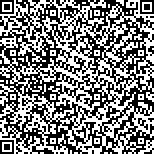| 李璐璐,李 敏,轩小燕.CiRS-7/P13K/AKT轴对乳腺癌细胞生物学行为的影响及紫草素干预机制研究[J].肿瘤学杂志,2021,27(7):549-555. |
| CiRS-7/P13K/AKT轴对乳腺癌细胞生物学行为的影响及紫草素干预机制研究 |
| Effect of Cirs-7 Regulation of P13K/AKT Pathway on the Biological Behavior of Breast Cancer Cells and the Mechanism of Shikonin Intervention |
| 投稿时间:2020-11-13 |
| DOI:10.11735/j.issn.1671-170X.2021.07.B007 |
|
 |
| 中文关键词: 乳腺癌 紫草素 ciRS-7 P13K/AKT通路 |
| 英文关键词:breast cancer shikonin ciRS-7 P13K/AKT pathway |
| 基金项目:河南省高等学校重点科研项目(15A310002);河南省高等学校重点科研项目(14A310014) |
|
| 摘要点击次数: 1063 |
| 全文下载次数: 216 |
| 中文摘要: |
| 摘 要:[目的] 探讨小脑变性相关蛋白1反义转录物(cerebellar degeneration-related protein 1 antisense,CDR1as,又名 ciRS-7)调控磷脂酰肌醇3激酶(phosphatidylinositol-3 kinase,P13K)/蛋白激酶B(protein kinase B,AKT)通路对乳腺癌细胞生物学行为影响及紫草素干预机制。[方法] 选取河南黄河科技学院附属医院收治的41例乳腺癌患者癌组织及癌旁正常乳腺组织,逆转录-聚合酶链反应(RT-PCR)法检测ciRS-7、P13K及AKT 信使RNA(messenger RNA,mRNA)表达情况。选取乳腺癌细胞株MCF-7及正常乳腺细胞MCF-10A进行体外实验。采用RT-PCR法检测MCF-7和MCF-10A细胞ciRS-7、P13K及AKT mRNA表达水平。向MCF-7细胞株转染 ciRS-7抑制剂(转染组) 和ciRS-7 inhibitor 阴性对照(阴性对照组)48 h后,采用Western blot法检测细胞P13K、磷酸化P13K(phosphorylation- phosphatidylinositol-3 kinase,p-P13K)、AKT、磷酸化AKT(phosphorylation- protein kinase B,p-AKT)蛋白表达量,MTT法检测细胞增殖抑制率,流式细胞术检测细胞凋亡,Transwell小室体外侵袭和迁徙实验检测细胞的体外迁移及侵袭能力。采用不同浓度(0、4、8、16 μmol/L)紫草素对MCF-7细胞进行干预,48 h后检测细胞增殖抑制率及凋亡率,RT-PCR法检测ciRS-7、P13K及AKT mRNA表达,Western blot法检测细胞P13K、p-P13K、AKT、p-AKT蛋白表达量。[结果] 相较于癌旁组织和MCF-10A细胞,乳腺癌组织和MCF-7细胞ciRS-7、P13K及AKT mRNA水平更高(P<0.05)。MCF-7细胞转染后,相较于阴性对照组,转染组P13K、p-P13K、AKT和p-AKT蛋白相对表达量有所降低,且细胞迁徙及侵袭能力均降低;转染48 h后,转染组和阴性对照组增殖抑制率分别为36.71%±4.22%、0.09%±0.05%,两组凋亡率分别为27.84%±3.57%、5.44%±1.28%,差异具有统计学意义(P<0.05)。随着紫草素干预浓度的增加,48 h细胞增殖抑制率及凋亡率也有所上升,ciRS-7、P13K及AKT mRNA水平以及P13K、p-P13K、AKT、p-AKT蛋白相对表达量有所降低(P<0.05)。 [结论] ciRS-7可通过P13K/AKT通路对乳腺癌细胞生物学行为产生影响,紫草素抑制乳腺癌细胞的增殖,并促进其凋亡,其机制可能与ciRS-7/P13K/AKT通路有关。 |
| 英文摘要: |
| Abstract: [Objective] To investigate the effect of ciRS-7 regulation of P13K/AKT pathway on the biological behavior of breast cancer cells and the mechanism of shikonin intervention.[Methods] The 41 breast cancer patients admitted to our hospital were selected as the research objects. The cancer tissue and normal breast tissue adjacent to the cancer were collected, and the expression of ciRS-7, P13K and AKT mRNA was detected by RT-PCR. Select breast cancer cell line MCF-7 and normal breast cell MCF-10A for in vitro experiments. RT-PCR was used to detect the expression levels of ciRS-7, P13K and AKT mRNA in MCF-7 and MCF-10A cells. After transfecting the MCF-7 cell line with ciRS-7 inhibitor(transfection group) and ciRS-7 inhibitor negative control(negative control group) for 48 hours, Western blot was used to detect P13K, p-P13K, AKT and p-AKT proteins expression level, MTT method to detect cell proliferation inhibition rate, flow cytometry to detect cell apoptosis, Transwell chamber in vitro invasion and migration test to detect cell migration and invasion ability in vitro. Different concentrations(0, 4, 8, 16 μmol/L) of shikonin were used to intervene in MCF-7 cells. After 48 hours, the cell proliferation inhibition rate and apoptosis rate were detected. The RT-PCR method was used to detect ciRS-7, P13K and AKT mRNA Expression, Western blot method to detect cell P13K, p-P13K, AKT, p-AKT protein expression.[Results] Compared with adjacent tissues and MCF-10A cells, the levels of ciRS-7, P13K and AKT mRNA in breast cancer tissues and MCF-7 cells were higher(P<0.05). After transfection of MCF-7 cells, compared with the negative control group, the relative expression of P13K, p-P13K, AKT and p-AKT protein in the transfection group decreased, and the cell migration and invasion abilities were reduced. After transfection 48 hours, the proliferation inhibition rates of the transfection group and the negative control group were 36.71%±4.22% and 0.09%±0.05%, respectively. The apoptosis rates of the two groups were 27.84%±3.57% and 5.44%±1.28%, respectively. The difference was statistically significant(P<0.05). With the increase of shikonin intervention concentration, the 48 h cell proliferation inhibition rate and apoptosis rate also increased, ciRS-7, P13K and AKT mRNA levels and the relative expression of P13K, p-P13K, AKT, and p-AKT proteins decrease(P<0.05).[Conclusion] ciRS-7 can affect the biological behavior of breast cancer cells through the P13K/AKT pathway. Shikonin inhibits the proliferation of breast cancer cells and promotes their apoptosis. The mechanism may be related to the ciRS-7/P13K/AKT pathway. |
|
在线阅读
查看全文 查看/发表评论 下载PDF阅读器 |